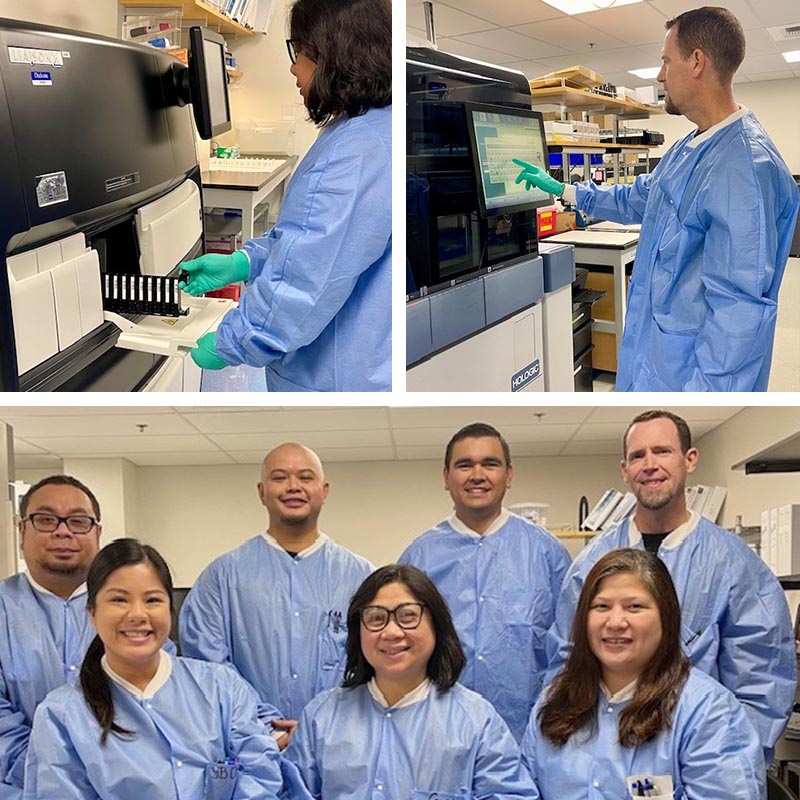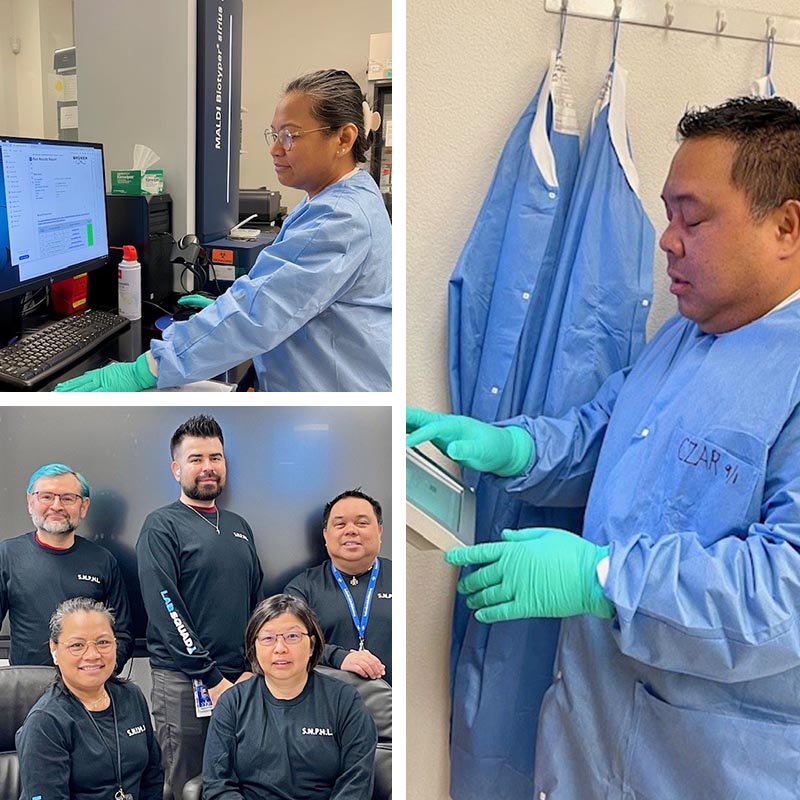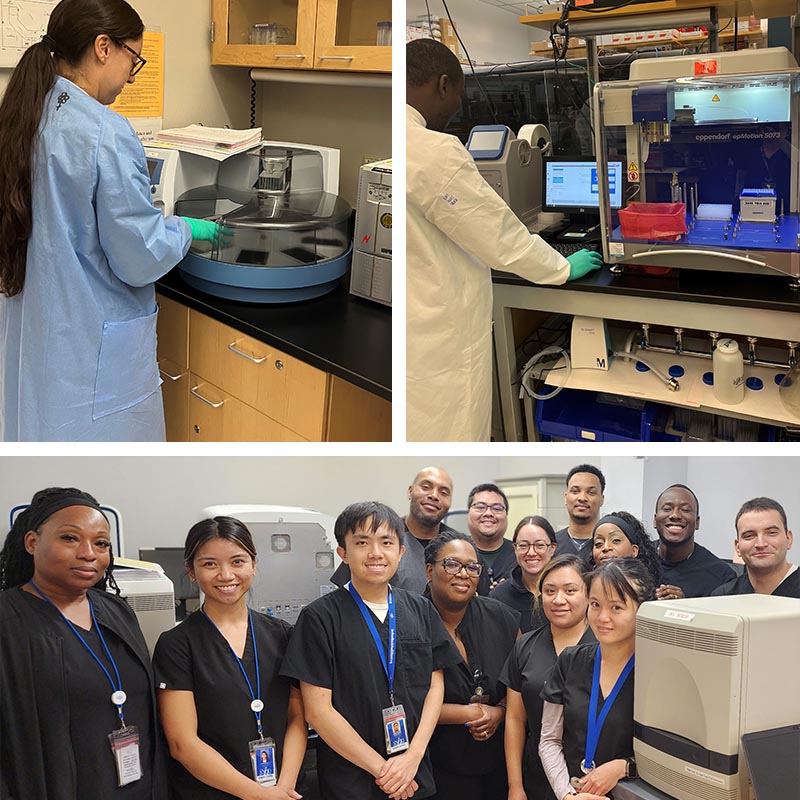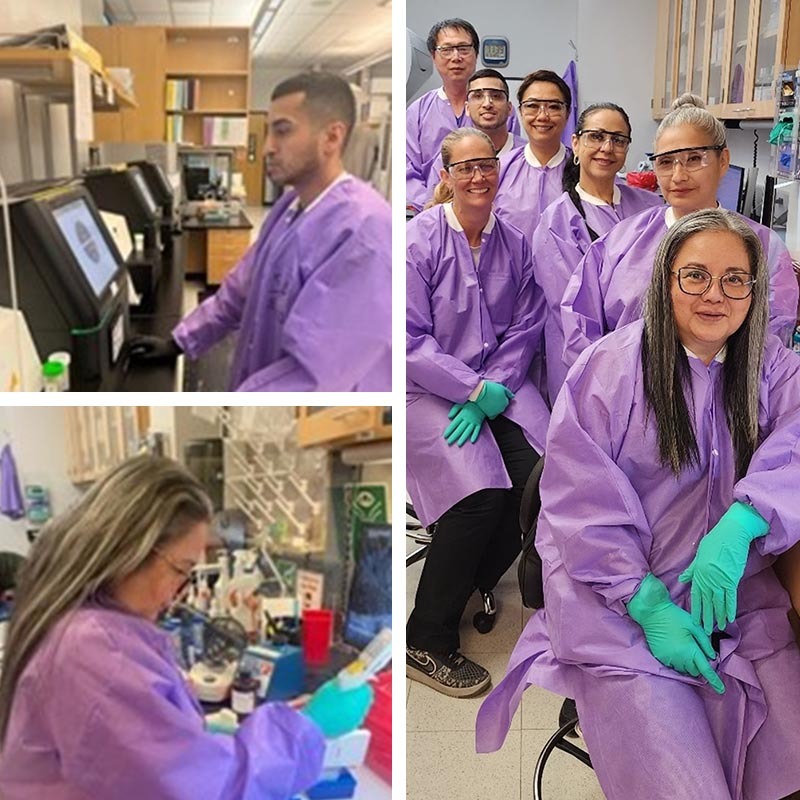Laboratory Departments
The Southern Nevada Public Health Laboratory (SNPHL) is comprised of four departments, each of which reports to the Laboratory Manager, who in turn reports to the Laboratory Director. The Laboratory Director reports to the Health District’s Community Health Division Director. The departments that comprise SNPHL are the Clinical Laboratory Department, Microbiology Department, Molecular Department and the Virology Department.
Clinical Laboratory Department
The Clinical Laboratory section of SNPHL performs a full range of testing for a wide variety of infectious diseases and works with the Health District’s Clinical Services Division, the Office of Disease Surveillance (ODS) and other community partners. By analyzing clinical samples, this department assists in activities pertaining to Southern Nevada’s surveillance, disease management and delivery of clinical testing services. The following services are offered routinely:
- Syphilis testing performed following the reverse CDC algorithm with RPR testing and TP-PA confirmation
- Hepatitis testing, including Hepatitis A, B and C
- QuantiFERON testing for latent TB
- HIV antigen/antibody, confirmation and viral load
- NAAT testing for Chlamydia trachomatis, Neisseria gonorrhea, SARS-CoV-2, Mycobacterium genitalis, Trichomonas vaginalis

Microbiology Department
The Microbiology department of SNPHL uses the latest methods to isolate, identify and characterize pathogens. The department coordinates with ODS, the Health District’s Environmental Health Division, government agencies, and hospital sentinel laboratories. It analyzes clinical, environmental samples and participates in the core activities of Southern Nevada surveillance, quality assessment, quality assurance and safety. Some of the services offered in Microbiology department are:
- Culture of stools for fecal pathogens and confirmation and typing of Shiga Toxin-producing coli, Salmonella enterica, and Shigella species from various sources
- Culture of clinical specimens for uncommon pathogens
- Foodborne outbreak surveillance from clinical bacterial pathogens under PulseNet

Virology Department
The Virology Department has a range of polymerase chain reaction (PCR) tests for a variety of infectious diseases. These tests use real-time PCR assay that target the DNA or RNA of viruses such as influenza. Some of the services offered in the Virology Department include:
- Surveillance for respiratory pathogens, including COVID-19 PCR testing
- Gastrointestinal pathogens identification
- Surveillance of vaccine preventable diseases
- Surveillance of vector-borne diseases

Molecular Detection Department
The Molecular department integrates the latest next-generation genomic sequencing technologies with bioinformatics for detecting and tracking outbreaks. Some of the services offered in the Molecular Department include:
- Surveillance of foodborne outbreaks
- Surveillance of SARS-CoV-2 lineages
- Bacterial and Viral typing through Whole Genome Sequencing

Updated on: June 3, 2024

